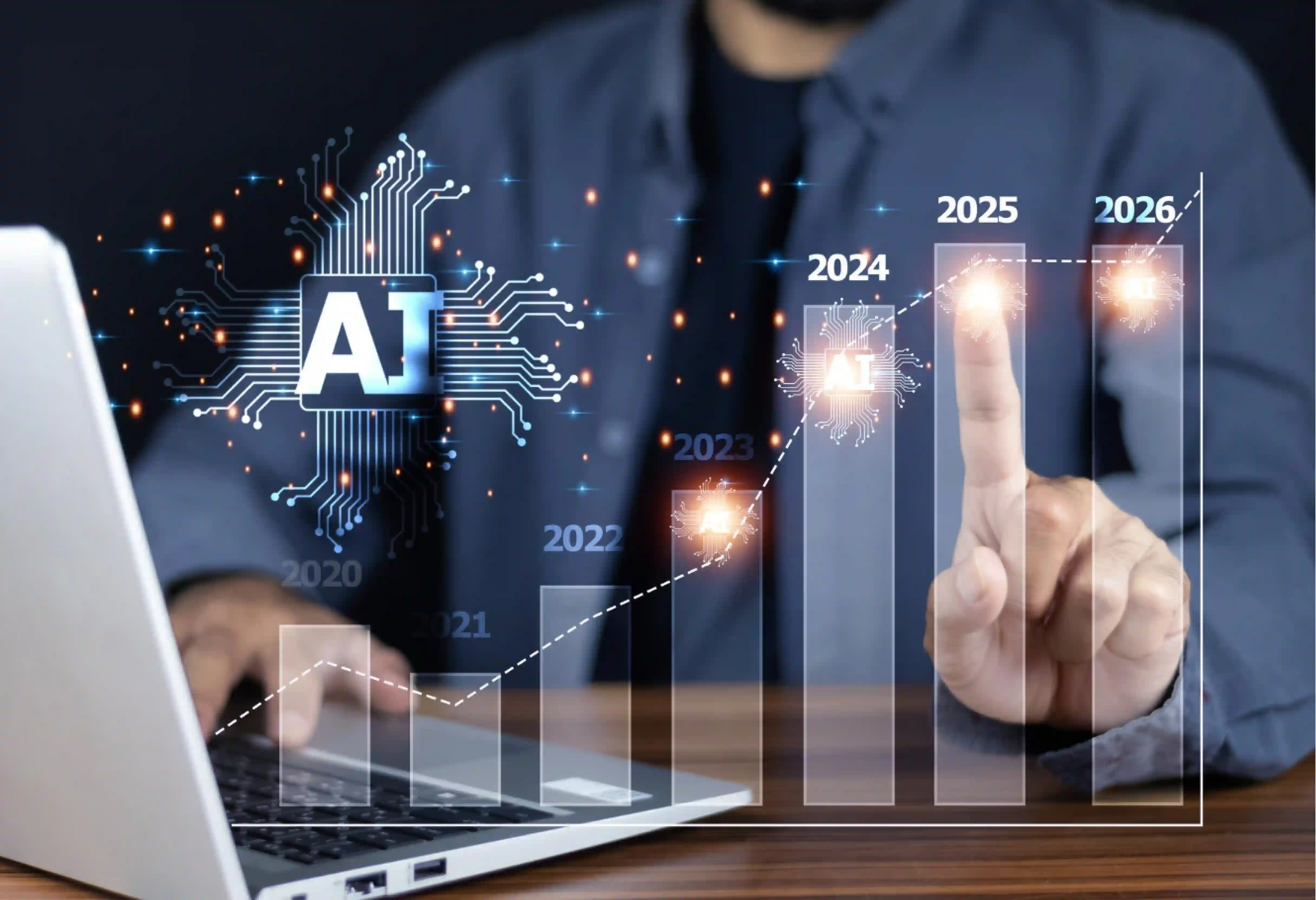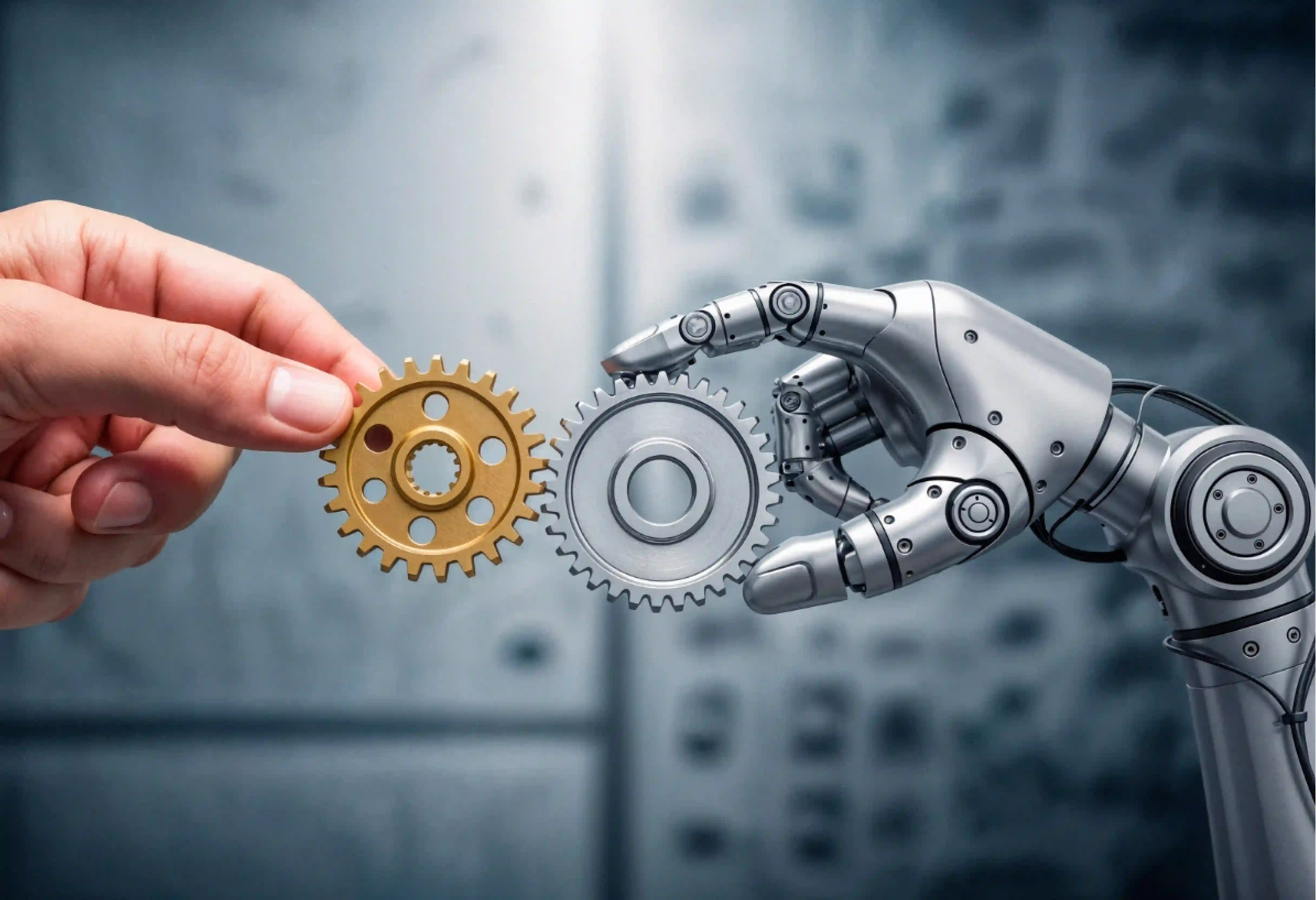


How AI is Shaping the Future of Data Analytics
The future of data analytics, inextricably tied to the development of artificial intelligence (AI) and machine learning (ML), will be transformational in terms of analyzing huge amounts of data for uncovering hidden patterns. This is the way that companies will think about making decisions based on data.
AI and advanced analytics traditionalizes the analytics into predictive analytics for an organization, helping the businesses predict trends, customer behaviors, and possible risks. Thus, proactive actions can be taken by organizations instead of just reacting to events. For example, AI-powered chatbots analyze customer interactions over time; they, therefore, provide immediate insights into customers' sentiments at a point which businesses can then respond instantly.
McKinsey's report suggests that businesses are five times more likely to fasten their decision-making and operational efficiency with the use of AI in data analytics. As per predictions from 2026, every industry will be fully engaged in AI-driven data analytics—from retail to health.
Actionable Insights:
Several key trends will define the future of data analytics, making it more accessible, actionable, and impactful:
All these trends make way for a very clear-cut transition toward more automated, real-time, or accessible analysis, converting data to a powerful business tool across sectors.
AI-based analytics is revolutionizing the future of data analytics by automating business intelligence. With the help of machine learning capabilities, AI-powered tools process and analyze data at a higher speed and with more accuracy than conventional methodologies.
For example, AI in marketing analytics can help companies segment their audience, customize campaigns, and optimize customer interactions continuously, without any human touch. Google Analytics, IBM Watson, and other AI tools can help companies with real-time insights, user experience optimization, and large-scale predictions of customer behavior.
Real-world Example: Google’s AI-based tools look at customer data and help brands with better advertising decisions, which leads to better ad spending efficiency and reach.
Actionable Insights:
As data becomes an integral part of business operations, the future of data analytics will involve greater emphasis on data governance and data security. With an increasing amount of data being generated, it is vital for business organizations to handle the data securely and in accordance with privacy regulations.
With the increasing frequency of data breaches and cybersecurity threats, the need for strong data governance frameworks has been amplified. Organizations must spend money on technologies for storing sensitive data, ensuring privacy, and complying with regulations such as the GDPR.
Best Practices:
The future of data analytics will be transformed by augmented analytics. Augmented analytics allows even the most naïve users to interact with and analyze data using the means of AI, ML, and NLU. Whether it be through a mere drag and drop, the users create reports, dashboards, or actionable insights with relative ease and with fairly nominal technical expertise.
For example, Salesforce's Einstein Analytics enables sales teams to derive data insights and actionable strategies using simple queries in natural language, with no need for complex coding or analysis skills.
Actionable Insights:
The importance of cloud computing to data analytics cannot effectively be overstated. With the migration of most businesses into the cloud, the future of data analytics will be molded by cloud-based analytics platforms presenting scalable, flexible, and real-time data processing.
These days, cloud-based tools such as Amazon Web Services (AWS) and Microsoft Azure are allowing businesses to be able to store, analyze, and access data from anywhere, improving collaboration and decision-making throughout the teams spread all over the world.
Actionable Insights:
In healthcare, AI and predictive analytics are transforming patient care. Doctors now use data models to predict chronic diseases like diabetes, enabling earlier interventions. For instance, AI tools like IBM Watson assist oncologists in creating personalized treatment plans. This tech is not only improving patient outcomes but also reducing hospital readmissions. Predictive models are helping providers move from reactive to proactive healthcare.
In finance, AI-powered analytics are importantly leveraged for fraud detection and risk assessment. Banks apply machine learning algorithms to identify suspicious activities in real time, thereby safeguarding customers and reducing losses. For instance, JPMorgan Chase employs AI for monitoring transactions for fraud. Predictive analytics allows lenders to more accurately assess the risk for credit. This shift ensures smarter decisions and a more secure financial environment.
Data analytics creates a personalized shopping experience in retail. Retailers monitor how customers behave to suggest products that will interest them for engagement and sales. Amazon provides an illustration of this through product recommendations using past purchases. Another use of data within the retail context is for supply chain optimization, whereby demand prediction prevents stock-outs. This integration helps with efficiency and drives better customer satisfaction.
Predictive analytics in manufacturing constantly assess equipment health to avoid breakdowns and costly downtimes. This is achieved through the sensor data on machine performance, allowing companies to predict failures and schedule maintenance proactively. Further optimization of production lines is achieved through AI analyzing operational data to reduce wastage. Companies such as GE use these insights to optimize efficiency. This tech-based methodology is changing how manufacturers do business, thus increasing output and lowering costs.
Many innovative advancements in data analytics can be expected in the coming years:
Data analytics sets the stage for new and exciting possibilities, and those companies that adopt them now will lead the way. With AI-powered insights, real-time analytics, and cloud computing solutions, companies can make smarter decisions and stay ahead of the competition. As a service-based company, Entrans is here to assist businesses in utilizing data for simplifying complex processes and unlocking future growth opportunities. Let Entrans guide you through the data revolution—today’s insights for tomorrow’s success.
Reach out today and let us show you how Entrans can help transform your business with smart data analytics solutions!






